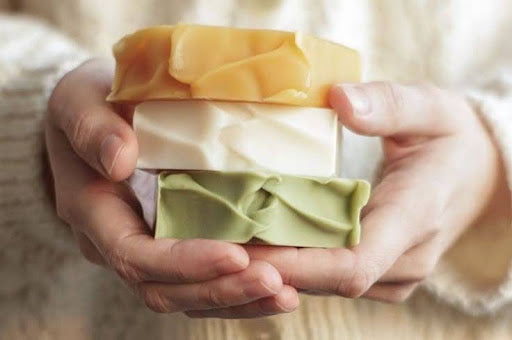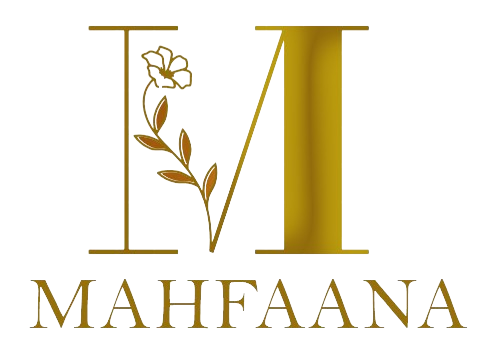
Why Pakistanis Prefer Local Organic Soap Brands in Pakistan in 2025
Share
You know how some things in life feel more real when they’re made close to home? That’s what’s happening with soaps in Pakistan right now. For years, store shelves were filled with big-name imported bars, wrapped in shiny packaging, promising instant fairness or magic whitening in seven days. After a while, people just started noticing something wasn’t right with those fancy supermarket soaps. They looked nice in the box, smelled strong when you opened them, but the more you actually used them, the more your skin felt tight, sometimes even itchy, and the scent turned out to be more chemical than comforting. It was like they promised softness but gave the opposite.
Now it’s 2025, and the shift is obvious. Walk through Karachi, Lahore, Bahawalpur, Multan, Faisalabad, or even Islamabad, and you’ll see people picking up local organic soap brands in Pakistan instead. There’s this little bit of pride in choosing something made by hand, something you know comes from real oils, herbs, and things you can actually imagine growing in soil here. And if you ask someone why they changed, they rarely just say “because it’s better.” They’ll usually tell a whole story: maybe their skin finally stopped flaking, maybe the smell reminded them of their childhood, maybe they just wanted something real. It turns out it’s not only about the soap. It’s about memory, comfort, health, and the small happiness of using something that feels honest.
Why People Are Switching to Local Soaps
It didn’t happen overnight. The move toward Pakistani soap brands grew slowly, almost like a seed sprouting underground before anyone notices the leaves. At first, it was people with sensitive skin. They were tired of harsh detergents hidden inside those glossy imported bars. They wanted something gentle, something safe. Then others joined in because they cared about ingredients, or because they realized their dadi’s old remedies of neem, aloe, or sandalwood worked better than chemical-laden formulas.
One young woman in Lahore told me, “I tried a handmade bar with lavender once, and my skin just… stopped itching. It was such a relief.” That kind of moment sticks with you. You don’t go back to supermarket soaps after that.
And here’s another truth: there’s something comforting about holding a bar that was poured and cut by hand, instead of stamped by a machine. A handmade soap brand doesn’t just clean; it feels like a gift. The bars never come out looking too perfect, and that’s honestly part of the charm. The fragrance is lighter, softer, it lingers instead of shouting. And there’s almost always a story tied to it. Maybe it’s a tiny family setup in Karachi pouring each batch by hand, or maybe it’s some young person in Bahawalpur who got tired of chemical soaps and decided to bring old herbal routines back into daily life.
That personal connection is something mass-market soaps will never give you.
The Cultural Connection
Our connection to natural care runs deep. Long before imported beauty products filled stores, Pakistanis trusted their own remedies. Neem leaves boiled in water for acne. Multani mitti masks for cooling. Haldi mixed with milk for a natural glow. These aren’t new “trends”—they’re cultural practices that stretch back generations.
So when people pick a desi soap brand or a herbal soap brand, they’re not just buying a bar of soap; they’re holding a piece of heritage. In 2025, with so much noise in the beauty industry, this return to tradition feels grounding. It feels authentic.
And let’s be honest: sometimes a bar made with rose petals, olive oil, or sandalwood smells more like home than anything imported ever could.
Sustainability and Supporting Local Brands
There’s also the bigger picture. Every time someone chooses sustainable beauty in Pakistan, they’re voting with their wallet. They’re saying no to plastics, no to unnecessary chemicals, and yes to businesses that care about the land we all live on.
Many homegrown soap brands use recyclable wrapping, paper packaging, or even sell naked bars without any wrap at all. Compare that to rows of commercial soaps covered in layers of plastic. It makes you think twice.
And beyond sustainability, there’s the economy. Every time you buy from a local bar brand, you’re supporting someone’s livelihood. Maybe it’s a small workshop in Multan where three sisters started their own soap line. Maybe it’s a cooperative in Bahawalpur growing herbs to supply makers. These aren’t faceless corporations; they’re real people whose craft becomes part of your daily ritual.
The Natural Soap Market in 2025
Walk into any organic store in Pakistan right now, and you’ll notice how vibrant the natural soap market in Pakistan has become. Shelves are stacked with options: neem bars for acne, rose and honey for hydration, goat milk for sensitive skin, and activated charcoal for detox. What was once seen as a niche is now a trend that’s here to stay.
In fact, people don’t just look for “soap” anymore. They ask for specifics: “Do you have a herbal soap brand with calendula?” or “Is there a Pakistani bar brand with real lavender oil?” That shift tells you a lot about how educated and conscious customers have become in 2025.
And what’s beautiful is how these bars feel luxurious without being unreachable. They’re not locked away in boutiques meant only for the elite. You can find them in Karachi supermarkets, small stalls in Bahawalpur, online shops delivering to Multan, or even through Instagram sellers based in Faisalabad. The accessibility makes it all the more special.
Mahfaana’s Place in This Story

This is where Mahfaana steps in. In a market buzzing with choices, Mahfaana doesn’t just sell soap; it creates an experience. Every bar is put together with oils, herbs, and little plant extras that people have trusted for generations. When you actually pick one up, you notice it right away: the surface feels a bit different, the smell isn’t that strong fake perfume you get from supermarket bars, it’s softer, more alive, and it makes you stop for a second just to breathe it in.
Picture this: you unwrap a bar of Mahfaana soap, and the fragrance drifts out—soft, clean, grounding. You use it, and instead of that tight, squeaky feeling commercial soaps leave behind, your skin feels cushioned, nourished. That moment matters.
In cities like Karachi, Bahawalpur, Multan, and Faisalabad, Mahfaana is becoming a trusted name for people who want honesty in their skincare. Whether it’s a rose bar that calms, a neem bar that clears, or a lavender bar that relaxes, the care is there in every detail.
And that’s why Mahfaana belongs to this new wave of indigenous soap makers—because it’s not just about selling a product, it’s about restoring a ritual.
What It Does to Your Mood
Soap may seem like a small thing, but it’s incredibly personal. It touches your skin daily. Choosing a domestic soap that was made with thought and honesty adds an emotional layer to an otherwise ordinary routine.
There’s also pride in knowing your rupees went to someone local. As one customer from Multan said, “When I buy Mahfaana, it’s not just soap. It’s me telling my skin and my country that I care.” That feeling is priceless.
FAQs
Q: Are Pakistani soaps safe for sensitive skin?
Yes. Most Pakistani soap brands that are handmade and organic avoid harsh chemicals, making them suitable for sensitive skin. Always check ingredients, but natural oils and herbs are usually gentle.
Q: Why choose a herbal soap brand over commercial bars?
Herbal soaps use real extracts and essential oils. They don’t just clean; they also soothe, hydrate, and treat skin naturally.
Q: What’s the difference between handmade and mass-produced soaps?
Handmade soaps are crafted in small batches, with attention to ingredients and quality. Mass-produced soaps often contain fillers, detergents, and artificial perfumes.
Q: Where can I buy authentic organic soap in Pakistan?
You can order from trusted local organic soap brands in Pakistan, like Mahfaana, online. They deliver across cities, including Karachi, Bahawalpur, Multan, and Faisalabad.
Final Word: Give Your Skin the Care It Deserves
Your skin sticks with you forever, and honestly, it puts up with more than we realize. It doesn’t need those harsh supermarket bars that smell like chemicals, and it doesn’t really ask for perfumes that feel fake. What it craves is something gentler, something closer to what people used before everything turned commercial. That’s what Mahfaana tries to give in every single bar: a small reminder to slow down, to breathe, and to enjoy the simple act of washing up.
So the next time you’re about to pick up a random supermarket bar, pause. Ask yourself: would you rather use something mass-made, or something that carries care, tradition, and authenticity in every cut?
✨ Choose Mahfaana. Because it’s not just a soap. It’s comfort, care, and a little love wrapped in a bar.
👉 Shop Mahfaana Soaps Now – your skin will thank you tomorrow.

